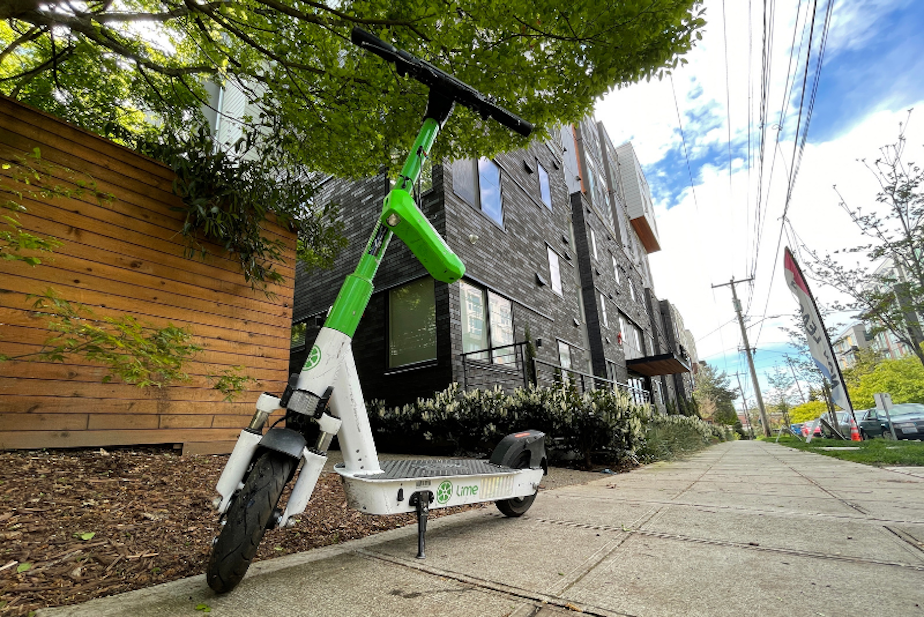Seattle's e-scooters are hot. Helmets are not. The brain injuries can be 'profound'

Seattle’s popular ride-share electric scooters are sending tens of thousands of people zipping across town — and some to Harborview with serious injuries. Last year, the city’s trauma hospital saw 163 serious injuries from e-scooters or e-bikes, many of them head injuries.
That’s up 37% from 2023, Harborview data show, and goes in tandem with the growing use of the peppy little vehicles. Since the scooter share program began in 2021, they've become ubiquitous on city streets: There were more than 14,500 rides per day last year, on average, a 42% increase from the previous year, according to Seattle Department of Transportation data.
Fatality rates involving e-scooters were not immediately available from the Seattle Fire Department.
RELATED: Trying all 5 shared e-scooters in Seattle, plus a unicycle
At Harborview's Injury Prevention and Research Center, pediatrician Beth Ebel said few of the patients she sees with scooter injuries wore a helmet. While the absolute risk of a serious crash is low, the stakes of going helmetless are high, she said.
Hitting a car or a pothole with a scooter can flip the rider over the handlebars, “so you have rotational energy right onto your head,” Ebel said.
Sponsored
“That movement and sudden stop can stretch and snap the axons, or the little connections between brain cells, and can cause profound cognitive injury,” she said. “If you fall on a scooter and break your arm, we can fix your broken arm. But when you have a head injury, it is not something that we fix. We just keep the damage from getting worse.”
King County had a mandatory helmet law for decades until the County Council repealed it in 2022 over concerns that, in the rare instances it was enforced, those ticketed were disproportionately people of color.
Ebel would like to see the helmet law reinstated, with monitoring to ensure it is fairly applied. "We deserve to have both public health evidence-based laws and equitable enforcement," Ebel said. "Those should not be the enemies of each other."
Even a helmet law that's not enforced would set a standard that could change norms about head protection on e-scooters, she said, as seatbelt laws did long ago.
RELATED: What's driving the battery fires with e-bikes and scooters?
Sponsored
Ebel said she appreciates the niche e-scooters fill in a city filled with hills, traffic, and folks who don't want to drive or wait for the bus. Riding them, she said, is also "really fun." But some cities and counties have given up on e-scooter ride-share programs because the hazards outweigh the benefits.
"It would be great if we can find a way to make it work," she said.
Along with clipping a lightweight helmet to your backpack with a carabiner if you know your day might include a scooter ride, Ebel recommends other simple safety measures for visibility, like clipping a light on that backpack for the ride, wearing a jacket with reflective strips, and never riding on the sidewalk, which is illegal.
“These are young folks in the prime of their life,” Ebel said of the scooter injury patients she sees at Harborview. “It’s all completely preventable.”
Correction 4/10/25: An earlier version of this story gave an incorrect daily average number of shared e-scooter rides in 2024.
RELATED: Parisians overwhelmingly vote to expel e-scooters from their streets




